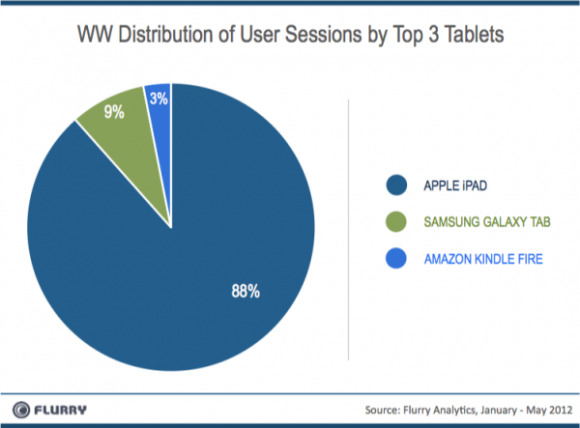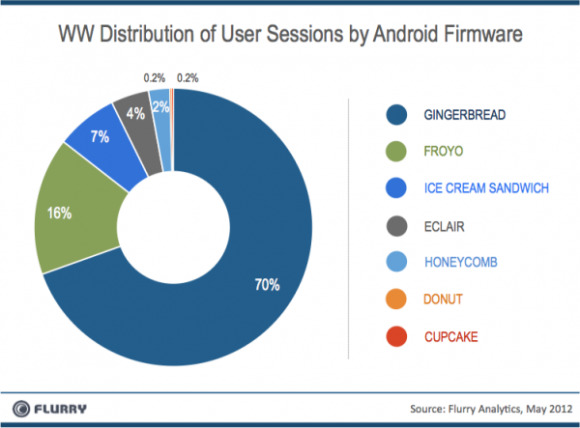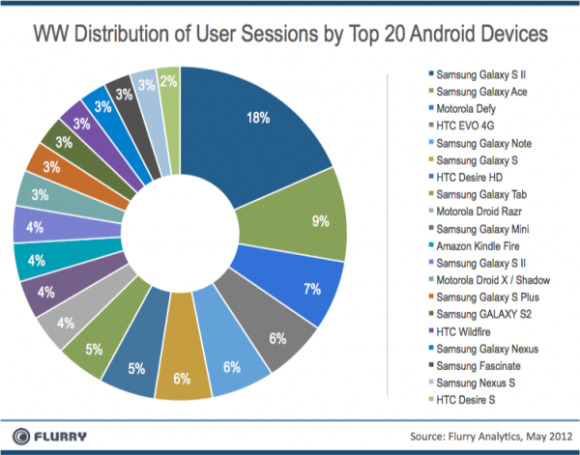Apple Developers Out-Weigh Android In Pre-WWDC Flurry Report
It appears that in the war between Google's Android and Apple's iOS there's a whole heck of a lot more people excited to get in on WWDC than there are to hang out at Google I/O, so says Flurry Analytics. In their most recent report, Flurry begins by noting that they are tracking 500 million devices and 36 billion anonymous end user sessions a month, and from this they've shown that each month the amount of new project starts growing a giant way, but much more for Apple than it does for Android.
The first chart you're seeing above shows that back in the first quarter of 2011, Flurry's tracking base showed right around 9 thousand new projects being started for apps in iOS and Android, with 37% of that number coming from Android while the rest, 67%, came from Apple's iOS. As time went on and the amount of projects skyrocketed up to more than 18 thousand in 2012, the cut between the two operating systems actually stayed nearly the same. What changed was Apple gaining a few percentage points, Android losing a few, and one whole heck of a lot more developers joining the ecosystem.

The next chart shows tablets specifically, with results showing that the iPad has no rivals other than the Samsung Galaxy Tab which has just 9% of the market and the Amazon Kindle Fire which holds just 3% of the overall market share – this chart shows January through May of 2012.

Flurry notes that according to an earlier study they did, they can see why Apple developers are more numerous: for every $1.00 a developer earns on iOS, they can expect $0.24 from Android. This is a rather harsh reality for developers wishing to stick with Android, of course, but other factors are at play as well. The distribution of user sessions pulled down by Flurry in May 2012 suggests that while 70% of the users they've tracked use Gingerbread, this is not the most recently released operating system on the market. The second most popular operating system version on android in this analysis was Froyo, a step behind Gingerbread. Android 4.0 Ice Cream Sandwich, the newest and most updated version of Android, only accounts for 7% of the market according to Flurry.
It's been said before and it will be said again many times in the future: it appears as though Android does not hold developers as well as Apple's iOS does because of fragmentation. If all Android devices were on the same operating system, would there be a better chance that more developers would be developing for the Google mobile operating system? Of course! The same is true of the amount of devices that run Android. Have a peek at a May 2012 chart of the breakdown of the population Flurry analyzed and get a fair show of devices that are taking the cake:

And stay tuned as we attend not just WWDC 2012 next week, but Google I/O 2012 to see what both parties have to say about how fabulous their mobile OS is for developers now and into the future.
